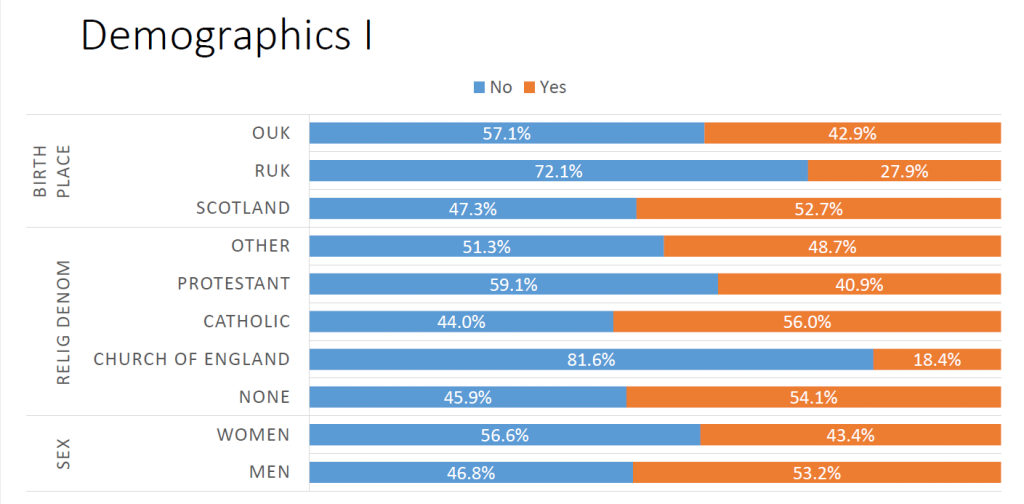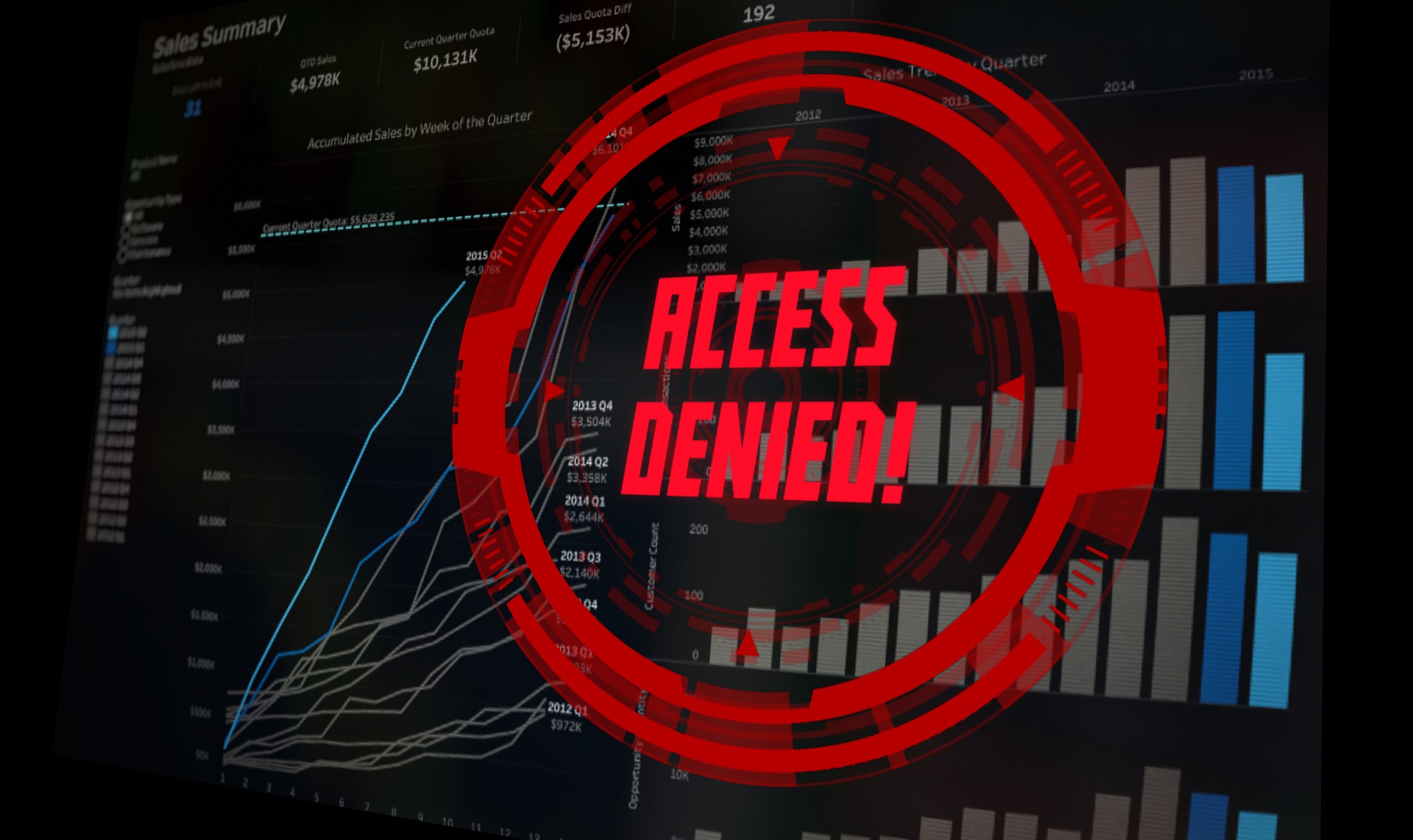Having once again been promised a referendum ‘next year’ by the first minister, the Scottish nationalist movement is getting quite animated in discussing the ‘franchise’ for it (who is allowed to vote and who is not.)
The thinking is simple. A report released in 2015 by a group at Edinburgh University claimed that the majority of those born in Scotland who voted did so in favour of leaving the UK. The majority of non-UK voters favoured remaining as did the majority of those born elsewhere in the UK but living here at the time.
“Real Scots voted Yes but English incomers skewed the result.” is the gist of the argument.
The suggestion is that next time round voting should be limited to Scots born and resident here and others who satisfy as yet unstated residency requirements.
There is little justification for changing the franchise and no evidence that any reasonable change would give nationalists the result they want.
Who decided the original franchise?
In January 2012 a consultation was launched by the UK government to gather opinion on many issues surrounding a future independence referendum.
“Scotland’s Constitutional Future A consultation on facilitating a legal, fair and decisive referendum on whether Scotland should leave the United Kingdom”
“legal, fair and decisive”
Among the questions consulted on was the franchise.
There were two existing franchises. One used for UK elections and another for Scottish elections. Creating a third option was deemed the least favourable option.
If a new franchise was created specifically for a Scottish independence referendum, it could lead to administrative complications and risk the perception that changes were being made to favour one or other outcome, and would enfranchise individuals currently ineligible to vote in Scottish Parliament elections.
Scotland’s Constitutional Future…
The recommendation was clear, as was the reason for it.
In considering the two existing franchises, it is the UK Government’s view that the devolved legislature and local government franchise would be most suitable. This is of course the franchise that elected the current Scottish Parliament and it was also used in 1997 for the referendum that established the Scottish Parliament. For this reason we have included provision in the draft section 30 Order (Annex A) to achieve this.
Scotland’s Constitutional Future…
Almost 3,000 responses were received, 1,429 of which expressed a view on the franchise to be used. 71% of those expressed the view that those resident in Scotland should be entitled to vote in a referendum and so the final report accepted the recommendation above.
What about Holyrood?
The Scottish government ran a parallel consultation ‘Your Scotland, Your Referendum’ which was open from 25 Jan 2012 to 11 May 2012 and received around 30,000 responses.
Despite the question still being open in the UK government consultation the Scottish governments consultation paper was adamant.
“In line with international best practice, the franchise for the referendum on Scotland’s constitutional future will reflect residency in Scotland. Eligibility to vote will be the same as for Scottish Parliament and local government elections and for the 1997 referendum on devolution. The Scottish Government also proposes to extend the franchise to include those 16 and 17 year olds who are on the electoral register on the day of the poll.”
Your Scotland, Your Referendum page 8
Did the SNP agree?
A couple of responses were received from SNP branches as well as a response from the party central office. Regarding the franchise, the SNP responded:
QUESTION 7:
https://consult.gov.scot/scotreferendum/consultation/view_respondent?uuId=414219860
What are your views on extending the franchise to those aged 16 and 17 years who are eligible to be registered on the electoral register?
The Scottish National Party has long supported votes for 16 and 17 year olds and agrees that those on the electoral register should be entitled to vote in the referendum.
So the SNP led Scottish government had decided to use this franchise and the official party response had no problem with that decision.
The ‘Edinburgh Report’?
Many Scottish nationalists use this as the basis for claiming that Scotland voted Yes in 2014 but was ‘outvoted’ by others. The survey was carried out before and after the referendum with around 4000 participants. It’s not easy to find out the results but I have located a set of slides and a video recording of a presentation given by the principal investigator.
This slide is the source of the nationalist belief that Scots not born here were more likely to vote No and that they swung the result.

University of Edinburgh Transatlantic Seminar Series, 27 March, 2015
Taken at face value this suggests that if the results mapped onto actual votes cast then ‘indigenous’ Scots voted Yes. But it’s not that simple.
- The figures take no account of how long those born elsewhere had lived in Scotland or how that affected their vote. To claim a win for the Yes side using these figures ONLY those born here could be allowed to vote.
- There’s no mention of whether these figures were the participants intentions or how they said they voted.
- The figures represent the responses of participants. When scaling up such a survey to predict the actions of a whole population there must always be a ‘confidence interval’. How accurately do they scale? Does the 52.7% figure for the Scots born Yes vote become 50-53% or 45 – 60% or what?
- And, of course, these numbers were valid in 2014 – 7 years ago as I write this.
I also found a video presentation of preliminary results presented by principal investigator Professor Ailsa Henderson, University of Edinburgh.
Not the answer
The decision to have a Scottish parliament was made by the same electorate that decides who serves there. Retaining this franchise for the 2014 referendum was not just agreed by the SNP Scottish government – they insisted on it.
To suggest that many individuals within this electorate are ‘not Scottish enough’ to participate in any future referendum is as offensive as it is foolish. The changes these nationalists desire would be so extreme as to leave the whole process meaningless.
At the moment the debate seems academical because there is little likelihood of a referendum any time soon. The concern I have is that this is a sign of a harder, nastier type of nationalist thinking coming forward. We have repeatedly been told that Scottish nationalism is a ‘nicer’ brand of nationalism – ‘Civic nationalism’.
Many of us unconvinced about the merits of leaving the UK have already experienced the darker underbelly that all causes seem to attract these days. As their chances of success recede it’s hardly surprising that some of the more moderate voices should start to toughen their stance.
Links to sources.
- The UK government consultation document and report are published at
https://www.gov.uk/government/consultations/scotlands-constitutional-future - The Scottish government consultation, responses and report are published at
https://consult.gov.scot/scotreferendum - The SNP Response is part of the above collection at
https://consult.gov.scot/scotreferendum/consultation/view_respondent?uuId=414219860 - Scottish Referendum Study
Please subscribe to be notified about new posts.
